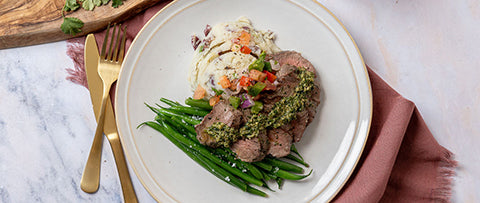What does breakfast look like for you? Eggs? A muffin or protein bar on the go? Or maybe non existent? While breakfast is often referred to as the most important meal of the day, only about 44% of people eat breakfast every day.
As the name suggests, breakfast breaks the overnight fasting period that your body has been in the last 6 to 12 hours while you were sleeping. When you wake up and start your day without breakfast you are depriving your body of calories and energy since the last time you’ve eaten the day before. Just like your car won’t drive without gas, your body won’t properly function without an adequate amount of food.
Taking as little as 5-10 minutes in the morning or the night before to prepare breakfast can be beneficial for your mental and physical health. Below are 5 reasons why you should eat breakfast.
Boosts energy levels
Your body’s main source of energy is glucose, which is absorbed and broken down from the carbohydrates that you eat. While your body does store most of your energy or glucose as fat, it also stores some of your glucose as glycogen which is stored in your liver and muscles. When your body needs energy, glycogen is broken down in your liver to release glucose which is used for energy to fuel your body.
When you wake up in the morning after fasting while sleeping, your glycogen levels are low which reduces your energy levels. Eating a balanced breakfast restores your glycogen levels and boosts energy so you will be able to power through the rest of your day.
Boosts brain power
If you skip breakfast and find yourself feeling sluggish or unable to focus halfway through the morning, this is because your brain hasn’t received the glucose or energy it needs to work to its full potential.
Skipping breakfast can make tasks at work, school, and home more challenging. Eating breakfast gives your brain the head start it needs to be able to focus and process information.
Sets the tone for healthy choices throughout the day
Starting your day off with a healthy breakfast can help you make healthier food choices throughout the day. Studies have shown that people who eat breakfast every day tend to have more healthy diets and eating habits overall.
Skipping breakfast can lead to unhealthy snacking and food choices because by the time you finally eat mid morning or lunch time your body is starving. Start your day off with quality foods such as whole grains, fruits, vegetables, protein, and healthy fats.
Provides your body with essential vitamins, minerals, and nutrients
Food is the best source of some essential vitamins, minerals and nutrients your body needs like Vitamin A, E, D, K, B vitamins, calcium, iron, and fiber. Many breakfast foods such as oatmeal, fruit, eggs, cereal, whole grain toast, avocados, and greek yogurt are high in these key vitamins and minerals and can help you reach your daily recommended amounts as well as keep you full until lunch time.
Helps with weight management
Eating breakfast has been proven to be a key factor in weight loss and weight management. A healthy breakfast can prevent drops in blood sugar levels and help you stay full. This in turn, can help fight cravings, overeating, and unhealthy food choices due to hunger.
If you are eating for weight loss, what you eat is important. Foods that are rich in protein and fiber are great choices for breakfast. Reading nutrition labels and ingredient lists and tracking your food can also help you to avoid added sugar and extra calories.
The takeaway
Breakfast is the most important meal of the day as it breaks the fast your body has been in while you are sleeping. Eating breakfast can boost energy levels, boost brain function, help you make healthy food choices throughout the day, provide your body with essential vitamins, minerals, and nutrients, and help with weight management.
Breakfast does not have to be traditional. As long as you wake up and fuel your body with quality foods like whole grains, fruits, vegetables, protein, healthy fats and carbohydrates, you are off to a great start.





